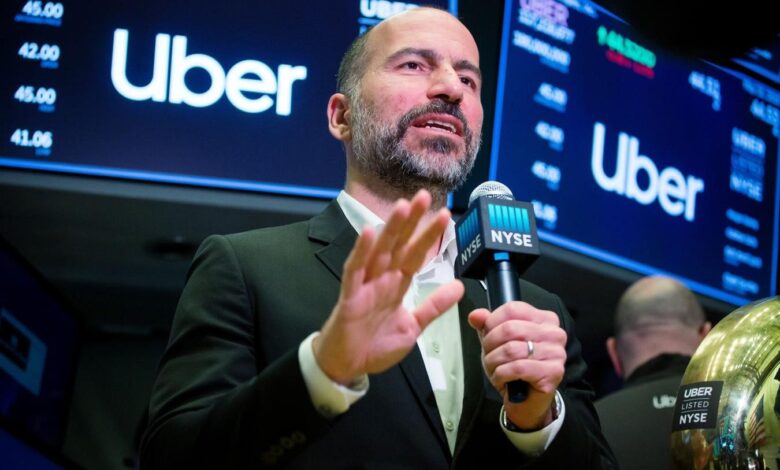5 Crucial Lessons In Unicorn-Entrepreneurship

Dara Khosrowshahi, chief executive officer of Uber Technologies Inc.. Photographer: Michael … [+]
Uber has been one of the most revolutionary companies of the last 50 years. It has changed transportation and continues to expand to other areas.
Travis Kalanick initially launched Uber as a limo rental service. However, he recognized a more significant opportunity in the vast number of people with quality vehicles who were eager to offer convenient and affordable rides. This insight led to his pivot towards the peer-to-peer transportation model that has made Uber a dominant company. Through global expansion, Kalanick transformed transportation for countless individuals worldwide.
But when Uber needed to become a professionally led organization, Kalanick seemed to have reached his limit of leadership, Dara Khosrowshahi took over and has succeeded in cementing Uber’s role in transportation.
Here are 5 lessons for entrepreneurs from the leadership of Kalanick and Khosrowshahi.
#1. Launch on an emerging trend.
Launching on an emerging trend is the most common strategy of unicorn-entrepreneurs. Unicorn-Entrepreneurs, from Sam Walton and Dick Schulze to Mark Zuckerberg and Gaston Taratuta, launched their unicorns on emerging trends. Based on his skills and track record as a co-founder of Red Swoosh. Kalanick was able to find a need that could be satisfied by the emerging technologies of powerful cell phones and GPS.
#2. Pivot to the unicorn-opportunity.
In true unicorn-entrepreneur fashion, Kalanick heeded market feedback and pivoted from the limo rental market to the global peer-to-peer transportation market. This crucial pivot helped propel Uber to unicorn status.
#3. Link business-smart and finance-smart to finance growth with control.
Excessive rounds of venture capital financing can pose significant risks to entrepreneurs, with a study indicating that as many as 85% of them were replaced when they increased the rounds of VC financing. Although Kalanick was able to finance the start of Uber with his own capital that was earned from his earlier venture with Mark Cuban, he got funding from VCs at the growth stage to stay dominant in the space he invented. So, he was finance-smart by financing to stay as CEO and by getting VC later to lead. But VCs do have clauses in their contract about their rights to change leadership. And when Kalanick’s numerous misteps gave them the motivation and opportunity to change leaders, they did.
#4. Adapt your leadership to the stage of the venture – pivot from entrepreneur to CEO.
Before Strategy Aha, ventures need swashbuckling entrepreneurs who can find the competitive edge in an emerging industry. Kalanick did so by influencing regulatory changes about the rights to drive passengers without a cab license. But after takeoff, entrepreneurs need leadership skills to transform a growing venture it into a corporation. When Kalanick was replaced by Khosrowshahi, Uber was able to get professional management to grow to a Fortune 500 corporation. 94% of billion-dollar entrepreneurs were able to make this pivot.
#5. Prioritize growth with profitability.
Under Khosrowshahi’s leadership, Uber has been able to satisfy the needs of the market and investors who want growth with cash flow – and stock buybacks. This has improved its financial standing and stock price and firmly positioned Uber as a dominant corporation.
MY TAKE: Entrepreneurs need two key categories of skills. The first is to master unicorn-startup skills to launch the unicorn. The second is to acquire unicorn-growth skills to transition from founder to CEO and build the unicorn. Entrepreneurs need a blend of strategic vision, operational excellence, a relentless pursuit of growth, and excellent leadership. Learning these skills is key to transitioning from founder to CEO to stay relevant to the growth of the company.



